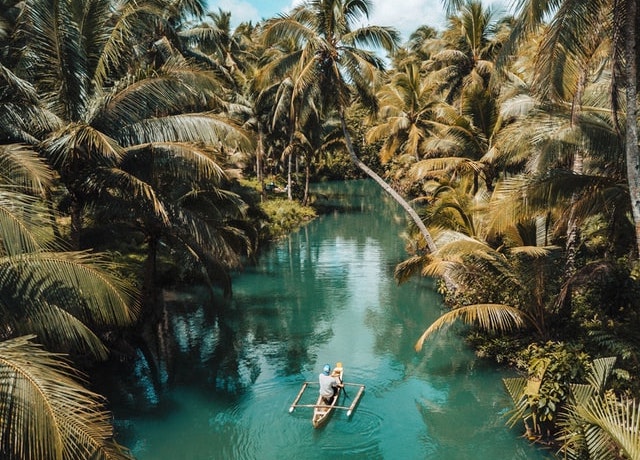
10 Tips To Start Choosing Sustainable Travel
Ecotourism promotes sustainable travel that benefits local communities, culture, and heritage and minimizes impacts on the environment. It’s not driven by economic growth at the expense of natural resources, but rather it proposes a way of educating travelers into making conscious green choices by allowing the necessary time for nature to regenerate and not compromise its resources. By opting for an ecotourism experience or holiday over a conventional tourism package you are making a conscious decision to reduce your impact, which is extremely important in today’s world.
Visiting a new place is not only about what you gain from it but also what you can give back to the community you’re visiting. It’s about the reciprocity that we must practice with our world and our relationships. If you’re ready to take the necessary steps to become a more conscious and sustainable traveler, here are 10 tips to get you started.
1. Be aware of your carbon footprint
Staying home or choosing to travel locally are the most eco-friendly options but we all know that the desire to learn about new cultures can be greater than us, so if you must take an airplane and travel to far-off locations, at least be aware of your carbon footprint.
• Fly direct when possible, that way you cut down emissions even further.
• Once you’re at a destination, choose public transportation. Check options for trains, buses, bikes, or other local options. Traveling by train generates up to 10 times fewer carbon emissions than an airplane.
• Consider slow travel, staying in one place for longer periods instead of jumping around too often. This also gives you the chance to connect more deeply with a culture and its people.
• Look for a carrier that uses sustainable aviation biofuel—like United, Qantas, and KLM.
2. Go to sustainable destinations
Don’t just go anywhere, choose destinations that have worked to provide amazing experiences to travelers but that also care for their local communities and ecosystems. Before randomly picking a place, do a quick google search of “greenest cities” or “greenest destinations” and choose from there what calls your attention. Maybe even the places you wanted to go to are already part of those lists! If you decide to go to normally crowded and too popular places, consider going during off-season periods. Alternatively, you can also go to places that need your support, for example, the ones that are rebuilding after facing a natural disaster (probably caused by climate change), and travelers can help further by volunteering where help is needed.
3. Choose your accommodation wisely
A hotel guest generates around 1 kg of waste per day, so knowing that a destination won’t be considerably affected after your stay is a great place to start. However, many hotels are pretending to be “green” options but they’re just greenwashing, which means that the hotels say they’re eco-friendly to draw more customers, but don’t do anything to back it up. To avoid this kind of situation, consider these options.
• Check for green certifications at hotels and hostels. Standards and certifications like Green Globe and Green Key can be usually found on the hotel’s website.
• Avoid large resorts. The kind of resorts that have the all-day buffets, wash your towels every day and have massive structures have already destroyed a great part of the ecosystem to build its structure and generate massive food and energy waste. Plus, the all-inclusive hotels don’t offer guests any incentives to leave the facilities, a practice that doesn’t give back to the local communities.
• Use alternative booking services like RegenerativeTravel, BookDifferent, or Lokal.
• Stay at locally-owned accommodations. Instead of choosing big hotel chains, find places that are owned by locals. Not only you will have a real experience curated by a local who cares about its town, but you’ll be offering your money to the local community.
4. Choose an environment-friendly diet
Honestly, for me, this is option #1 not only at home but anywhere you go. A plant-based diet is the most effective way you can personally reduce your impact. Reducing meat consumption reduces methane emissions and land clearing for livestock use, and it’s also essential for changing the unfair, environment-unfriendly, and disease-generator system we currently have. The meat-lobby will provide the information you’re looking for for your lifestyle to stay as it is, but the truth is completely different. You must do your research and learn about what is happening in the food industry today. If you still want to eat non-vegetarian, choose chicken or sustainably sourced seafood instead. If you want to try cutting these out entirely, however, tofu and nuts are among the most sustainable options. However, while you might prefer a plant-based diet, consider bending the rules if it means supporting local farmers instead of big industry or non-local businesses.
5. Watch your habits
No matter where you end up staying, remember to practice the same basic environmentally friendly habits you have at home. Turn the lights off when you leave a room, reuse towels, and use reusable containers and bottles instead of disposable products. Beyond that, use the “do not disturb” sign on the door to prevent extra vacuuming and changing of linens. If you go on outdoor adventures, remember to stay on the path to avoid disturbing native flora, pick up trash as you go, and don’t feed the wildlife. And, of course, don’t litter.
6. Support local communities
As with accommodation, spend your tourist money in restaurants and cafes run by locals. I know it’s easier to not having to think about where to go to eat, but at least a few times during your stay make an effort to find local restaurants to enjoy. You will try different flavors, chat with local people and likely you will get to know of hidden gems you probably wouldn’t have found out if staying at your hotel or going to restaurant chains. Take a walk and discover what this destination has to offer.
7. Reduce food & plastic waste
It’s estimated that by 2050 there will be more plastic in the ocean than fish. This is a terrible indictment on us humans and the way we consume. Here are some numbers you should know.
• An estimated 1.3 billion tonnes of food is wasted globally each year, one-third of all food produced for human consumption, according to the Food and Agriculture Organization (FAO) of the United Nations.
• Plastic bottles take up to 700 years to disintegrate
• 90% of bottled water is the bottle itself
• 80% of plastic bottles never get recycled
• 24,000,000 liters of oil is needed to produce these billions of plastic bottles
• Bottling water and shipping transport is the least energy-efficient method of water supply in the history of mankind
• Bottled water is the second most popular beverage in the United States
To avoid these terrifying numbers, here are some tips you can try.
• Think twice before ordering at a restaurant. You might have a big appetite and everything on the menu might look amazing, but you must reckon with yourself honestly and decide how much food you can eat. It’s terrible that we can waste so much food and yet there are still people around the world dying of hunger. We can do better than that.
• Bring reusable and environmentally friendly items that can lessen the trace you leave behind like cutlery and small containers for snacking, reusable straw, reusable silicone sanitary cup, reef-safe sunscreen, etc.
• Avoid plastic bottles and bring your reusable water bottle wherever you go. You can ask for filtered water refills from restaurants, or ask for a jug of filtered water for your hotel room and using that to refill your bottle.
• Hopefully, if you stayed at an eco-friendly hotel, they will have soap dispensers vs. tiny bottles, and you can also bring your shampoo and other toiletries.
8. Buy sustainable craft and gifts by local artisans
Even in “local markets” sometimes it’s hard to find locally-made craft. Large factories have invaded the most recondite places and when you think you’re supporting local artisans, you’re giving your money to large containers of imitations coming from China. It’s a sad reality so you have to be extra careful about your purchases and read the labels to make sure you know where it comes from. Ask before you buy where things are made and if you see more than 15 pieces looking exactly the same, the chances that those are factory-made are pretty high, and therefore have a larger carbon footprint. Instead of buying plastic gifts, look for something consumable like chocolates, oils, or spices.
9. Sustainable activities and voluntourism
Do your research before booking tours. Look for accreditations such as GSTC, Green Globe, Rainforest Alliance, EarthCheck, Green Tourism Business Scheme (UK) and other regulatory bodies. Just like in hotels, watch out for greenwashing operators and only participate in responsible wildlife tourism, if you’re allowed to touch, cuddle or ride the animals, this is a red flag for sure. Look for tours that won’t disturb wildlife and that ensure you are a certain distance away from any animals.
You can also take this opportunity to volunteer in local projects or community-led activities. Always research volunteering opportunities and the organizers behind them to avoid greenwashing and to ensure that your time and money will be positively contributing to the place and/or people you are visiting
10. Reciprocity & respect
You’re probably thinking about all the things you’re going to learn and experience in a new destination but it’s equally important to think about how your visit is benefiting the land and the community you’re stepping into. Avoid taking pictures of locals without asking for permission first. It’s respectful to learn a few important words in the language of the country you’re visiting, and will greatly benefit you when you have questions. Money is not the only thing that gives back, be grateful about them opening their doors and hosting you. Yes, on many occasions tourism is the main source of income for many communities, but opening their way of living to you also deserves your respect so find any opportunities you can to give back and thank them for everything you’re getting from this place.
It might seem like a lot of steps but trust that this is just at the beginning. Your re-learning how to travel and once you get into the groove and have these steps incorporated into your lifestyle, it will be much easier. Don’t give up before getting started, the more people demanding sustainable options, the more solutions the market will offer. In the end, it will benefit all of us and this planet we call home.
Inspired by Charlie on Travel & The NYTimes







